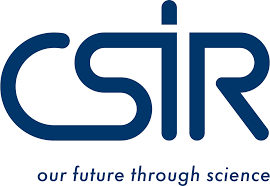Questo sito web utilizza i cookie per potervi offrire la migliore esperienza d'uso possibile. Le informazioni contenute nei cookie vengono memorizzate nel browser dell'utente e svolgono funzioni quali il riconoscimento dell'utente quando torna sul nostro sito web e l'aiuto al nostro team per capire quali sezioni del sito web sono più interessanti e utili per l'utente.

Partner Presentation
The Council for Scientific and Industrial Research, commonly known as the CSIR, is a world-class African research and development organisation established through an Act of Parliament in 1945. The CSIR undertakes directed, multidisciplinary research and technological innovation that contributes to the improved quality of life of South Africans. The organisation plays a key role in supporting government’s programmes through directed research that is aligned with the country’s priorities, the organisation’s mandate and its science, engineering and technology competences. The CSIR’s Southern Ocean Carbon – Climate Observatory (SOCCO) is a South African research programme that contributes to understanding the ocean physics and biogeochemical mechanisms that explain the variability and long-term trends of CO2 fluxes in the Southern Ocean. SOCCO has a particular focus on understanding, through observations and modelling, the role of fine scale ocean physics, the interaction of storms with meso and submesoscale gradients, in determining the thermal and biological control of the seasonal cycle of air-sea fluxes of CO2. The seasonal cycle is used to diagnose forcing mechanisms that explain model biases. SOCCO also undertakes research in the use of machine learning empirical models to address the space and time data gaps in ocean CO2 in order to provide improved constraints for the interannual variability of the seasonal cycle as well as identify forcing factors for the observed variability.
Role in project
The role of CSIR in the project is focused on WP1 (Air-Sea Fluxes) T1.1: Observations of CO2; T1.2: Assess scales of variability; T1.4: role of sea-ice on CO2 fluxes; T1.5: Estimation of contribution of Weddell fluxes to Southern Ocean fluxes.
Key Personnel

Dr Pedro MS Monteiro
Chief Oceanographer at CSIR in South Africa

Dr Sarah Nicholson
Expert in the dynamics of the response of the upper ocean to storms and buoyancy forcing
